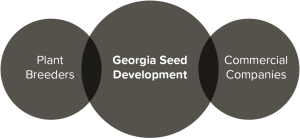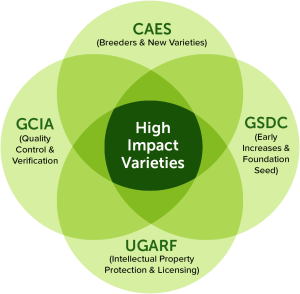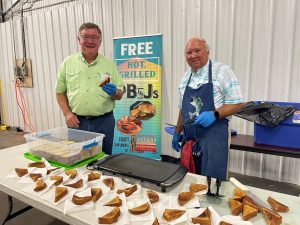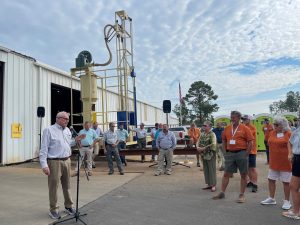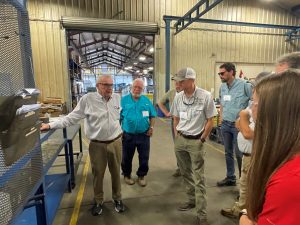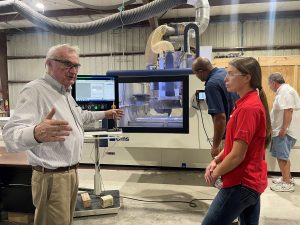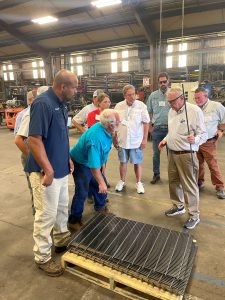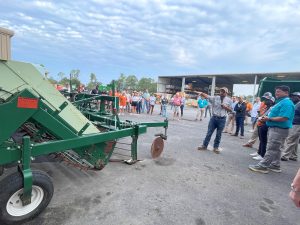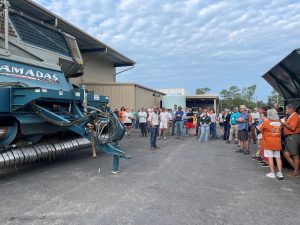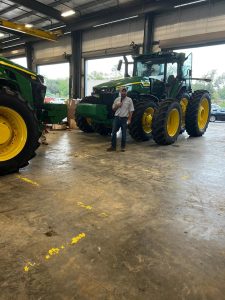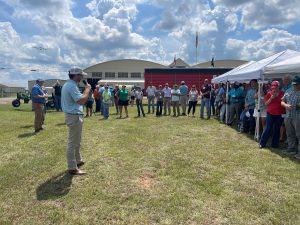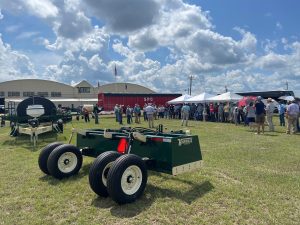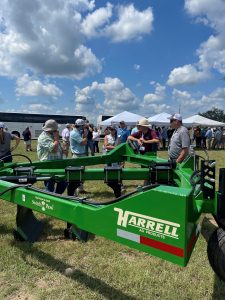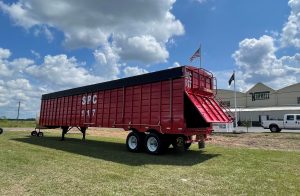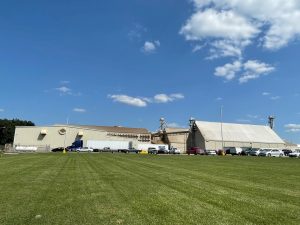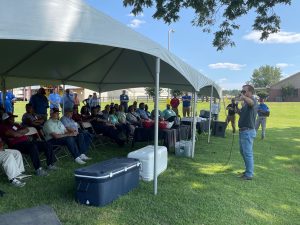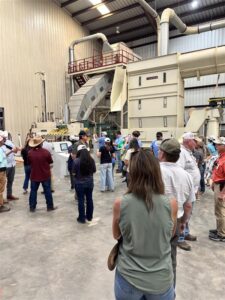 Established in 1983, BCT Gin Company, Inc. handles cotton, peanuts, corn, and small grains with operations in Quitman, Berlin, Pavo, Adel, and Moultrie.
Established in 1983, BCT Gin Company, Inc. handles cotton, peanuts, corn, and small grains with operations in Quitman, Berlin, Pavo, Adel, and Moultrie.
The shareholders and Board of Directors knew this company needed managers who were knowledgeable in farming and would also have the foresight and skills to take this company to new levels of success and growth. The positions were filled with enthusiastic and qualified individuals who were dedicated and determined to meet the needs of the farmers. Forty years later, Steve Bullard is the Executive Manager and Jessica Goodman is the Executive Office Manager over all the divisions. It is with great pride, BCT Gin’s shareholders, managers, staff and employees have looked back at the end of every ginning season and said, “A job well done.” And wondering how they could do it even better the next season.
Dedication and drive like this is what brought BCT Gin Company to the level of success it is today. BCT has expanded over the years with numerous locations. Maintaining three ginning facilities, three peanut buying points, a grain facility and a warehouse for storage. With new upgrades, BCT is always ready to meet the customer’s needs.
BCT can safely and proudly say it has met the demands of existing customers and is prepared to meet the needs of any new customers. The company and its leaders have made their mark in the cotton and peanut industry. From getting cotton and peanuts out of the field, to marketing and selling the crop at the best prices, BCT Gin management is well known and respected throughout the industry for insight, knowledge, and expertise in cotton and peanut production and marketing.
BCT would consider it an honor to assist any farmer with any questions or problems they may have. BCT believes in customer relations and satisfaction. No matter how big or small, BCT’s goal is to work with every farmer with equal effort because every farmer is a valued customer.
While at BCT, tour attendees were treated with homemade ice cream with an array of flowers including peach, blueberry, and strawberry. The ice cream was from a local shop right down the road called Burton Brooks Peach Orchard. Following ice cream, attendees took a walk throught the cotton gin seeing how the process takes place and also recieved insight on current technologies on modern day equipment.
Now you make ask why attendees were brought to a cotton gin while on a peanut tour. Farmers must rotate their crops and peanuts and cotton often go hand in hand. Jessica Goodman stated while on the tour that 100% of their peanut growers also grow cotton.
View the 2025 Georgia Peanut Tour Photo Album
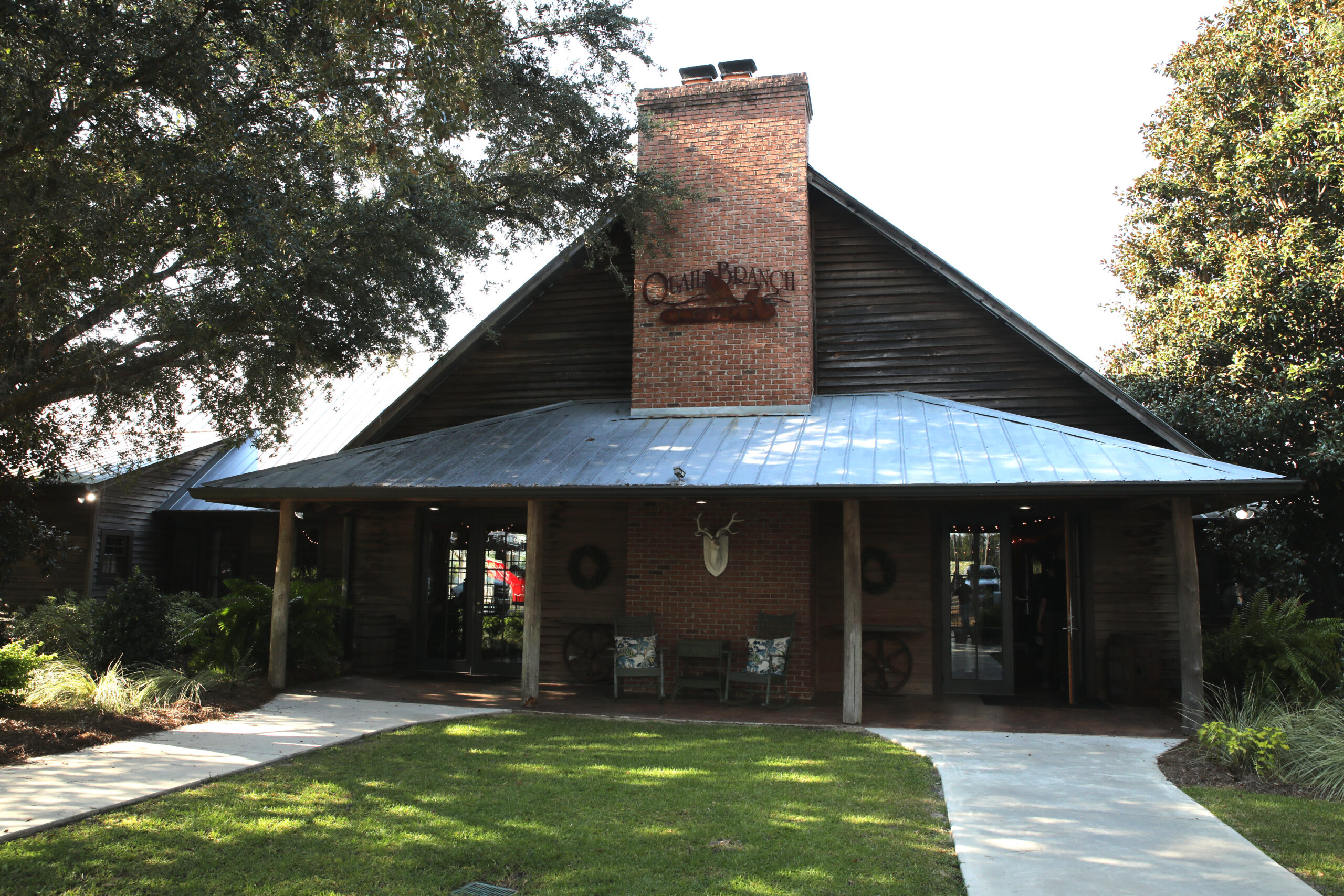 The 2025 Georgia Peanut Tour concluded with dinner hosted at the Quail Branch Lodge. Quail Branch Lodge is the premier wedding destination located in Lake Park, Georgia, offering a complete array of amenities to fulfill every bride’s dream wedding. The lodge is set amongst nature pine forests, vast agriculture expanses and pristine waters.
The 2025 Georgia Peanut Tour concluded with dinner hosted at the Quail Branch Lodge. Quail Branch Lodge is the premier wedding destination located in Lake Park, Georgia, offering a complete array of amenities to fulfill every bride’s dream wedding. The lodge is set amongst nature pine forests, vast agriculture expanses and pristine waters.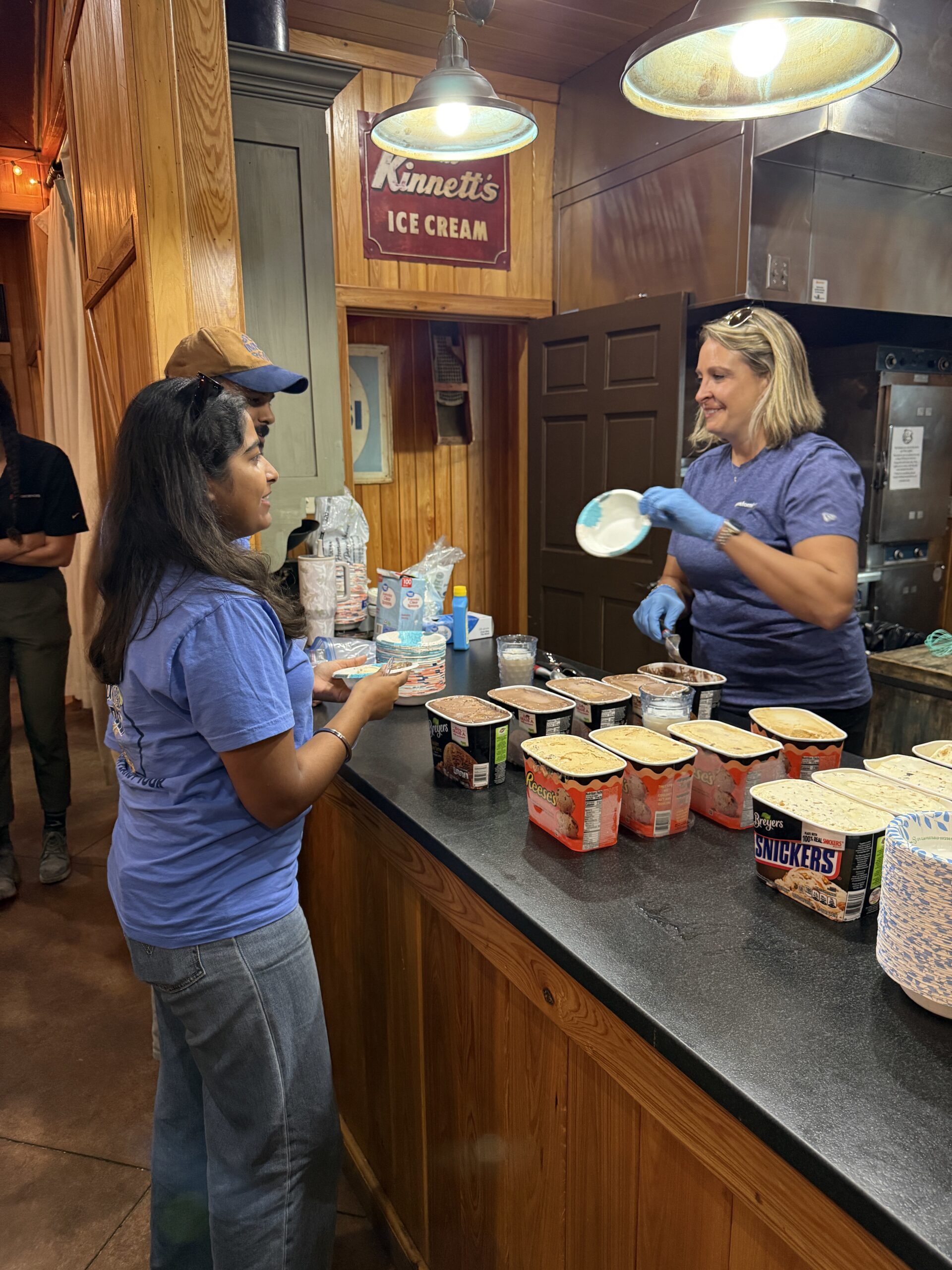 A Georgia Peanut Tour tradition, the Wednesday night meal featured the famous low country boil and peanut-inspired ice cream sponsored by Corteva Agriscience. Corteva has sponsored the low country boil for many years, making it a tradition most all tour attendees look forward to. The boil includes shrimp, sausage, potatoes and corn.
A Georgia Peanut Tour tradition, the Wednesday night meal featured the famous low country boil and peanut-inspired ice cream sponsored by Corteva Agriscience. Corteva has sponsored the low country boil for many years, making it a tradition most all tour attendees look forward to. The boil includes shrimp, sausage, potatoes and corn.
 Established in 1983,
Established in 1983, 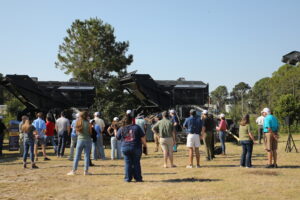 Colombo North America
Colombo North America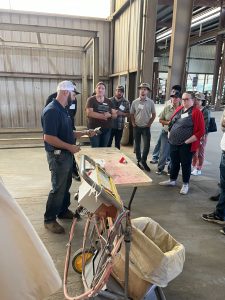
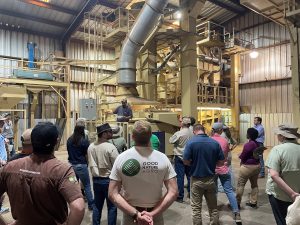 Georgia Seed Development is responsible for overseeing the foundation plant material production in Georgia. As a nonprofit, self-supporting organization, GSD provides economic support for new business opportunities that help keep agriculture as Georgia’s No. 1 industry. This effort has resulted in more than $15 million of additional support for University of Georgia cultivar development since 1997.
Georgia Seed Development is responsible for overseeing the foundation plant material production in Georgia. As a nonprofit, self-supporting organization, GSD provides economic support for new business opportunities that help keep agriculture as Georgia’s No. 1 industry. This effort has resulted in more than $15 million of additional support for University of Georgia cultivar development since 1997.